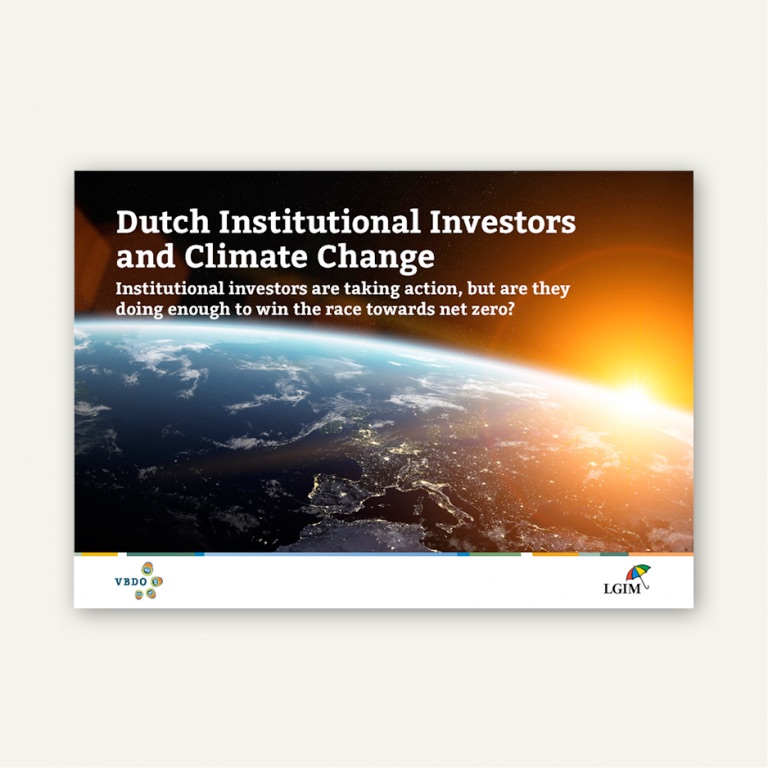Climate change has been on the agenda of Dutch pension funds and insurers since the Paris Climate Agreement. But are they doing enough to prevent an abrupt transition? The short answer is ‘no’, according to new research by the Association of Investors for Sustainable Development (VBDO), with support from LGIM. Much still needs to be done if institutional investors are to contribute sufficiently to the goal of achieving net zero emissions by 2050.
The report “Dutch Institutional Investors and Climate Change – Institutional investors are taking action, but are they doing enough to win the race towards net zero?” follows VBDO’s biennial pension fund and insurer benchmark. The Climate Change report examines the policies, implementation, governance and transparency of the largest 50 pension funds and 30 insurers, representing a total of almost €2,000 billion in assets under management.
‘COP26 emphasised that a great responsibility rests on the shoulders of the financial sector worldwide. The pursuit of net zero is quickly becoming an important benchmark for the sector. LGIM believes it is crucial that we not only bear this responsibility but also aim to be a frontrunner in this ambition. Research like VBDO’s is essential if we want to steer our sector in the right direction,’ says Nick Stansbury, Head of Climate Solutions at LGIM.
Insurers lag behind in integrating climate risks
It is clear that climate is already on the agenda of many institutional investors. Current research shows that the overall average score has increased to 4.0 (on a scale of 1-10), compared to 1.9 in 2019.
The top five institutional investors in the report are (in order of performance) Athora Netherlands, NN Group, ABP, a.s.r. and BpfBouw. While two insurers are ranked within the top five, by and large insurers are lagging behind in integrating climate-related risks and criteria in their investment processes and portfolios.
Athora Netherlands comes out particularly well due to setting absolute CO2 reduction targets that are based on scientific research. In addition, it proactively engages with companies and various stakeholders about these targets and related topics.
The transition to net zero
In general, VBDO believes that institutional investors should set more ambitious targets. Angélique Laskewitz, Executive Director of VBDO, says: ‘The goals must be more concrete and in line with the Paris Climate Agreement. We mainly see a focus on climate mitigation and limiting climate risks in the portfolio, but much more attention must be paid to making the portfolio and the real economy climate resilient. Only a handful of institutional investors have targets and strategies in place to ensure the climate resilience of their portfolios.’
The report’s author, Lucienne De Bakker, believes that hard choices should be made in this regard: ‘We would like to see investors develop a comprehensive engagement and clear escalation strategy. This should include deploying the voting policy alongside engagement and excluding companies that show no improvement. Work with both heavy-emitting companies and those already making the transition to net zero. Utilise industry timelines consistent with scientific IEA and IPCC scenarios.
‘The moment of waiting, of looking at each other, of wondering who is going to do what is long gone. Or it should be. Organisations should lead the way by setting ambitious but realistic emissions reduction commitments while making portfolios economically resilient to the effects of climate change.’

